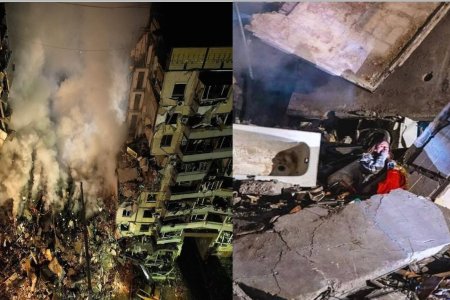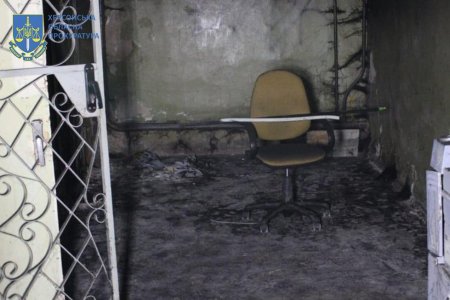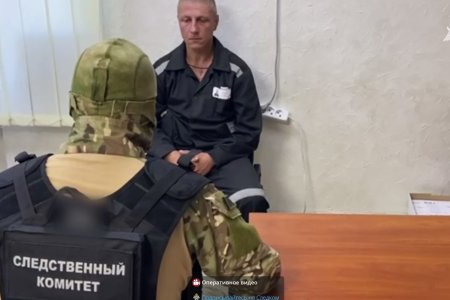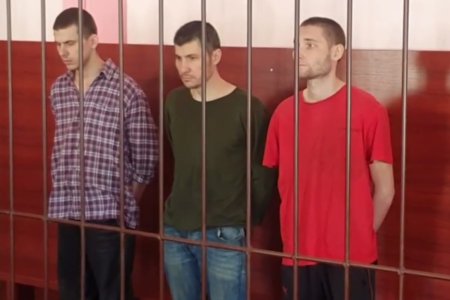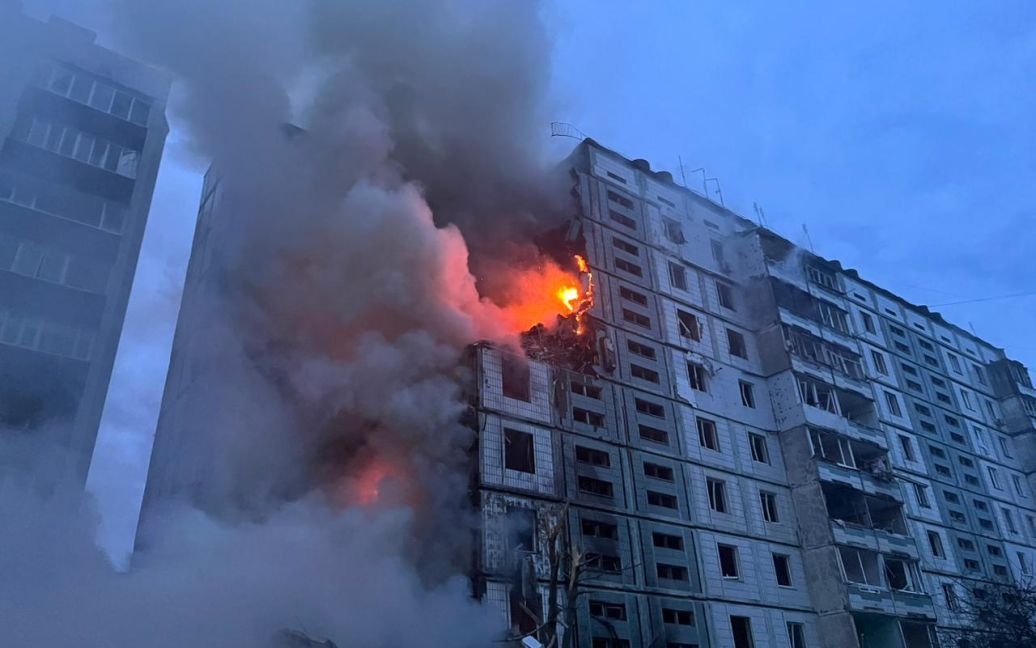
The Independent International Commission of Inquiry on Ukraine has published a report detailing “further evidence” of Russian war crimes in Ukraine. These include horrific sexual crimes, even the repeated rape of an 83-year-old woman, widespread and systematic use of torture and indiscriminate attacks on civilian targets. The Commission’s findings are based on extensive investigation and interviews of victims. Such authoritative and detailed reports are obviously important, especially given Russia’s constant denial of all such war crimes and the money and efforts the Kremlin’s propaganda machine is using to spread its false narrative throughout the world. The problem remains, however, that they bring neither Russian accountability, nor an end to its aggression any closer. The last recommendation of the report highlights one of the reasons, with the call for other countries to “further integrate the human rights dimensions of the armed conflict in Ukraine more fully into the Security Council’s agenda” remaining, at best, about raising subjects for endless discussion, while Russia is allow to retain its permanent status and power of veto on the Security Council.
The Commission was created by the UN Human Rights Council soon after Russia’s full-scale invasion of Ukraine, with its mandate renewed for a second term a year later. It continues to be chaired by Eric Møse, and has three independent and unpaid members, one of whom has changed since the first term.
In the report submitted to the UN’s General Assembly on 21 October, the Commission pointed out that it had focused its investigation on Kherson and Zaporizhzhia oblasts, large parts of which were or have remained under Russian occupation since after Russia’s full-scale invasion in 2022.
Sexual violence
The Commission documented a harrowing number of cases of rape and sexual violence in a district of Kherson oblast. The cases of rape had occurred between March and July 2022, in small villages, mostly when the Russians burst into the victims’ homes. The victims included a 16-year-old girl and women aged from 19 to 83, most of whom were in a vulnerable position, with the rapes perpetrated with the use of force or psychological coercion. “Victims reported rapes at gunpoint and threats of killing or of inflicting other serious harm to the victims or their relatives. In some cases, the same perpetrator raped the victim two or more times. In two cases, perpetrators gang-raped the victims. One of the victims and her husband were shot dead by Russian soldiers after they reported the rape.”
The perpetrators also committed other acts of violence against their victims, including severe beatings, strangling and firing shots next to their heads. “In several cases, the Commission concluded that these acts amounted to torture. 80. In a number of cases, family members were present when the rape took place. There are instances in which perpetrators also committed crimes and violations against them, including killing, attempted killing, and torture.”
The Commission describes several appalling crimes, such as those against an 83-year-old woman who was beaten and raped over several hours. The perpetrator threatened to also rape the lady’s disabled husband who was present in the house, and later stole some of their possessions. “The Commission found that, in addition to rape, the war crime of torture was committed against the victim.”
“In May 2022, three Russian soldiers came to the house of a married couple who had stayed behind to look after the grandmother. They beat the 52-year-old man and all three perpetrators raped the 50-year-old woman in turns. The couple reported the rape to the Russian armed forces commander. Neighbours recounted that after this, three different soldiers “were looking for a woman who reported the rape”, went to the couple’s house and shot dead both of them. The Commission found that, in addition to the rape of the woman, the war crimes of wilful killing and torture were also committed against both victims.”
In July 2022, a Russian soldier burst into the home of a 75-year-old woman living alone. He physically beat her, and, when she refused to undress, he not only ripped off her clothes, but slashed her abdomen with something sharp and raped her several times, The next morning, he both raped and beat her again. “The victim had several broken ribs and teeth knocked-out as a result. The Commission found that, in addition to rape, the war crime of torture was also committed against the victim.”
The Commission reports that it is also investigating allegations of rape committed during detention, with several men and women reporting threats of rape and other sexual violence against themselves, as well as against family members.
Systematic and widespread use of torture
As reported earlier, the Commission’s preliminary report to the Human Rights Committee came shortly after the UN’s Special Rapporteur on Torture stated that her investigation had led her to conclude that the methods of torture used by the Russians was of a systematic nature, and that this was part of Russian state-endorsed policy.
The Commission reported then, and has now reiterated, that the Russian armed forces’ use of torture was widespread and systematic and that it had, in some cases, resulted in the death of the victim. Of the cases they had documented, the victims were either men or women aged from 29 to 57. As earlier, “the Commission found that similar methods of torture were used across different detention facilities which it has examined.”
Worth noting that most of the methods used have been reported in occupied Crimea or Donbas since 2014. Although Russia tried to claim it had nothing to do with the conflict in Donbas, and the holding by its proxy ‘republics’ of Ukrainian civilian hostages and POWs, the methods applied, as well as their use to obtain televised ‘confessions’ were similar, if not identical, to those used by the FSB in occupied Crimea.
Indiscriminate attacks on civilian targets
Russia has been bombing or shelling residential buildings, hospitals, schools, places of cultural heritage and other civilian sites since February 2022. It invariably denies hitting civilian targets, although it sometimes provide multiple, mutually contradictory claims as to why certain targets were hit.
In this report, the Commission looked in detail at a missile strike “on a residential building in Uman, Cherkasy oblast, on 28 April 2023, as well as strikes that affected a supermarket and a gas station in Kherson on 3 May 2023. The attack on the Uman apartment block killed 24 people, most of them women and children, and left many more homeless. The Commission concluded that these were indiscriminate attacks perpetrated by Russian armed forces, in violation of international humanitarian law”
There are, in fact, grounds for believing that at least some of the strikes on clear civilian targets were by no means indiscriminate. In addition, the targeting of Ukraine’s critical energy infrastructure, is not only deliberate, but was positively boasted about, as revenge, by Russian president Vladimir Putin in October 2022. The Commission mentions these attacks, but only really to say that they are investigative their impact on civilians. Given that everybody is expecting Russia to carry out similar attacks as soon as the really cold weather hits, it is frustrating that the International Criminal Court’s Office of the Prosecutor has not yet issued arrest warrants over this and similar war crimes.
Transfers and deportation of children
The Commission earlier reported that in some of the cases they had investigated, “ such transfers occurred in violation of international humanitarian law and qualified as unlawful transfers or deportations, which is a war crime. It notably documented the transfer of 31 children from Ukraine to the Russian Federation in May 2022, and concluded that it was an unlawful deportation and a war crime
